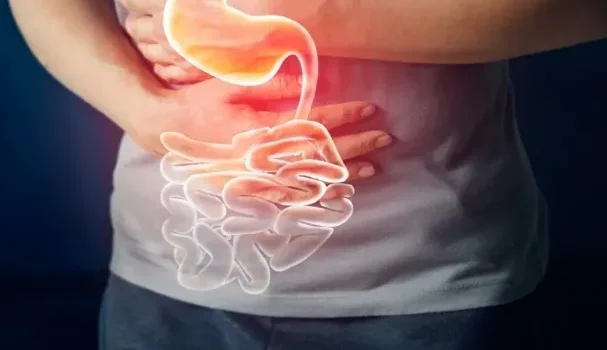Many of us experience digestive issues like bloating, gas, or abdominal discomfort from time to time, but if these symptoms are persistent, they may indicate an underlying gastrointestinal (GI) disorder. Understanding these issues is crucial for effective treatment and dietary adjustments. In this blog, we will look at common digestive concerns and GI conditions, sharing insights into their causes, symptoms, and potential treatments.
The Importance of Understanding Digestive Health
Digestive problems can arise from various causes, and identifying the root of your symptoms is vital for managing them effectively. Poor digestion and nutrient absorption can affect overall health and wellbeing, so understanding the underlying cause is key to improving gut health. In this post, we’ll explore some of the most common digestive disorders and offer practical tips for managing them.
Celiac Disease
Celiac disease is an autoimmune disorder that affects individuals genetically predisposed to it. It’s estimated that 1 in 100 people are affected by celiac disease, but many go undiagnosed. Consuming gluten, which is found in wheat, barley, and rye, can damage the small intestine, impairing nutrient absorption and causing digestive problems. Common symptoms include bloating, diarrhea, fatigue, abdominal pain, and weight loss. The only treatment for celiac disease is lifelong avoidance of gluten. Those diagnosed should also be cautious of cross-contamination from gluten-containing foods.
Non-Celiac Gluten Sensitivity
Non-celiac gluten sensitivity (NCGS) involves similar symptoms to celiac disease, such as bloating and abdominal discomfort, but without the damage to the intestines. Unlike celiac disease, there are no definitive tests for NCGS, and it is often self-diagnosed. While there is still some debate about whether gluten is the primary trigger, some individuals may react to components like fructans or amylase-trypsin inhibitors in wheat. The best approach to managing NCGS is to avoid gluten-containing foods, just as with celiac disease.
Irritable Bowel Syndrome (IBS)
Irritable bowel syndrome (IBS) is a common condition affecting around 10-15% of the population. It is characterized by changes in bowel movements, including diarrhea, constipation, or both. IBS can also cause bloating, gas, and abdominal cramps. The causes of IBS are not fully understood, but factors such as stress, anxiety, inflammation, or changes in the gut microbiome can contribute. While there is no single test for IBS, a low-FODMAP diet, which reduces certain carbohydrates that cause gas and bloating, is a common management strategy. Working with a dietitian is key for navigating the restrictive nature of this diet.
Inflammatory Bowel Disease (IBD)
Inflammatory bowel disease (IBD) refers to conditions like Crohn’s disease and ulcerative colitis, which cause inflammation in different parts of the digestive tract. Crohn’s disease can affect any part of the GI tract, while ulcerative colitis specifically affects the colon. Symptoms include diarrhea, abdominal pain, weight loss, and fatigue. IBD can lead to nutrient malabsorption and requires medical treatment to manage flare-ups. A dietitian can help develop a nutritional plan to support individuals with IBD and prevent complications.
Small Intestinal Bacterial Overgrowth (SIBO)
SIBO occurs when there is an overgrowth of bacteria in the small intestine. This condition is often linked to IBS, autoimmune disorders, and certain medications. Symptoms include bloating, excessive gas, diarrhea, and even brain fog. SIBO can be diagnosed with a breath test, and antibiotics are typically used for treatment. A low-FODMAP diet can help alleviate symptoms by reducing fermentable carbohydrates that contribute to gas production.
Diverticulosis and Diverticulitis
Diverticulosis refers to the formation of small pouches in the intestines, while diverticulitis occurs when these pouches become inflamed. Diverticulosis is common in people over 60, and it is often linked to a low-fiber diet. Symptoms include abdominal pain, constipation, nausea, and changes in bowel movements. Increased fiber intake and adequate hydration can help manage diverticulosis, while diverticulitis may require more intensive treatment, including antibiotics.
How to Diagnose and Manage Digestive Disorders
The symptoms of GI disorders often overlap, which can make diagnosis challenging. Conditions like celiac disease, IBS, and IBD can present with similar symptoms, so it’s essential to consult with a healthcare professional for a proper diagnosis. A gastroenterologist may order tests, including biopsies, to rule out other conditions.
Once diagnosed, it’s important to work with a registered dietitian to create a tailored nutrition plan that addresses the specific needs of your condition. Managing digestive health often involves dietary changes, medications, and lifestyle adjustments to reduce symptoms and improve overall well-being.
Personal Experience: My Journey to Better Gut Health
I personally struggled with digestive upset for years, dealing with bloating, gas, and abdominal pain. I didn’t realize how severe my symptoms were until they began to affect my daily life. As I started my career as a Registered Dietitian, I learned about gut health and discovered that my symptoms were linked to specific food triggers, including gluten, eggs, and lactose. By following a gut healing protocol, I was able to identify and manage these triggers, leading to significant relief.
I later learned about IBS and pursued certification in IBS management. Through trial and error, I determined that I had a non-celiac gluten sensitivity, which is managed in a similar way to celiac disease. Now that I understand my triggers and how to manage them, I rarely experience digestive issues, and when I do, I can pinpoint the cause.
Understanding your body and knowing what foods affect you is essential for managing digestive health. With the right knowledge and support, it’s possible to live a comfortable, symptom-free life.
Conclusion
Digestive disorders can significantly impact quality of life, but with the right diagnosis, treatment, and nutrition therapy, you can take control of your gut health. If you suspect you have a gastrointestinal disorder, seek medical guidance and work with a registered dietitian to develop a nutrition plan tailored to your needs. By understanding your symptoms and triggers, you can make informed decisions that promote healing and help you manage digestive upset effectively.











